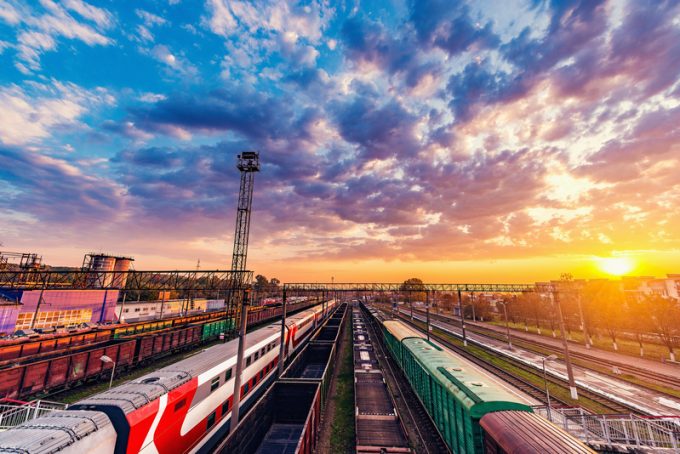China acts to improve reliability of block trains bound for Europe
China Railway Container Transport (CRCT) is trying to create block trains that run on time, ...

A joint rail logistics firm from Azerbaijan, Georgia and Kazakhstan could massively reduce transit times across the Middle Corridor as the countries target global logistics status.
Last week, local media reported that Georgia and Kazakhstan had signed a framework deal unifying their national rail firms, with Azerbaijan co-signing the following day – their aim is to cut China-Europe transit time by as much as 15 days.
Kazakhstan prime minister Alikhan Smailov said: “We’re actively cooperating in the framework of development of the Trans-Caspian [Middle Corridor] route. We are interested in increasing the transport connections of the region and consistently improving transit conditions.”
According to data from his government, trade turnover between the three countries increased seven-fold last year, reaching $600m, and in the first four months of this year, they recorded a five-fold increase in mutual trade, amounting to some $167m.
Mr Smailov said there were “good indicators” that this would hit the billion-dollar threshold “in the near future”.
Georgia’s prime minister, Irakli Garibashvili, said: “Today, new opportunities are opening up for our countries and our region as a whole. We must be ready to work actively in the coming years to realise long-term prospects.
“We’re working to eliminate bottlenecks and make the Middle Corridor even more attractive to Central Asia, China and other Asian countries.”
The development is part of a plan to turn the Caucasus countries from regional to global logistics powerhouses, Azerbaijan proving particularly active in the endeavour. Alongside improving Middle Corridor connectivity, the government in Baku is planning to increase the capacity of the Baku International Marine Trade Port, the biggest facility on the Caspian Sea, from 15m to 25m tonnes, its throughput already having climbed significantly since Russia’s invasion of Ukraine.
Director general of the port Taleh Ziyadov said: “Today our port can handle up to 100,000 containers… this will grow to 500,000 teu a year. Last year we handled 62,000 containers, which points to the need to start the growth plan.”
He also pointed to a steady increase in transhipment volumes.
Comment on this article